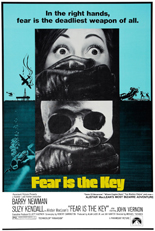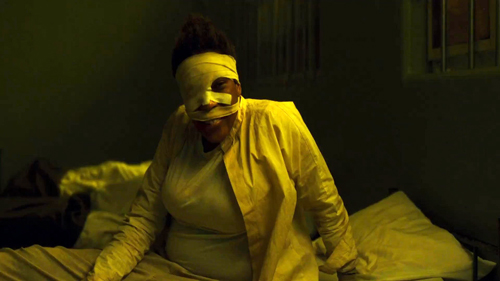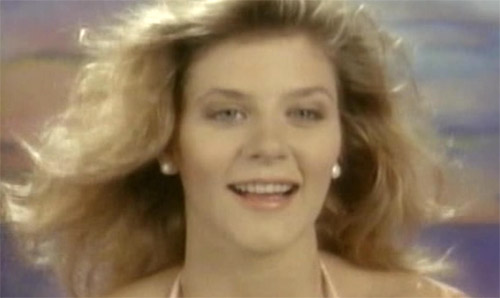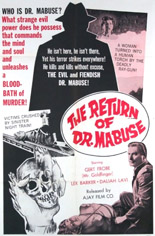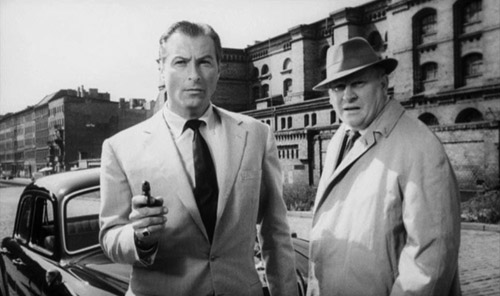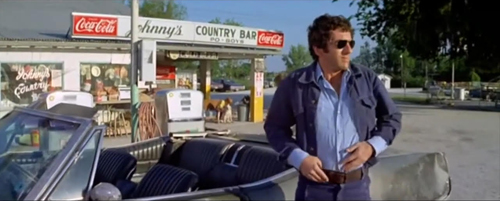

Vanishing Point’s Barry Newman takes the wheel of Fear Is the Key as John Talbot, a man who has nothing to lose — because he already has. In the first scene, he’s mid-conversation via radio with his wife when her plane is shot down, killing her.
Cut to: rural Louisiana. Now, Talbot gives zero fucks. While driving through the Deep South, he runs afoul of the law and ends up hauled to court. So he simply shoots his way out, taking an unlucky spectator named Sarah (Suzy Kendall, Circus of Fear) hostage.
Stealing a ’72 Ford Gran Torino, Talbot kicks off an extraordinary car chase with a brassy Roy Budd score. Seriously, this sequence is an all-time great, nipping at the trunks of Bullitt and The French Connection. It’s great distraction to keep viewers from realizing screenwriter Robert Carrington (Wait Until Dark) lets a whole act pass before letting us know what the heck Talbot’s even doing in Louisiana, much less start plotting.
Sarah’s the daughter of an oil baron (Ray McAnally, Taffin) with several heavies on his payroll. Rather than send Talbot six feet under for kidnapping, they enlist him on a deep-sea salvage mission for millions in jewels. The scene when Talbot glimpses their target on the ocean floor is a thing of beauty — so breathtaking, it’s odd director Michael Tuchner (1971’s Villain) soon found himself toiling for the tube.
Something of an outlier for an adaptation of Alistair MacLean, the novelist responsible for every existing movie with “Navarone” in its title, Fear Is the Key hums with quality. Although Newman is not the “SUPER COOL DANGER-FREAK” as the Australian one-sheet proclaimed, he’s a reliable presence and — necessary for highly flawed heroes — affable. At his side, Kendall possesses great beauty, great lungs for screaming and an awful Louisiana accent.
John Vernon (Dirty Harry), Dolph Sweet (Brian De Palma’s Sisters) and, in his first film, that Sexy Beast Ben Kingsley nail their supporting roles. Apropos of nothing but Key’s overall quality, their characters bear incredible names: respectively, Vyland, Jablonksi and Royale — no cheese whatsoever.
An unheralded crime film awaiting discovery, Fear Is the Key transitions baby-butt smoothly from action to adventure while staying sublime all the while. —Rod Lott

